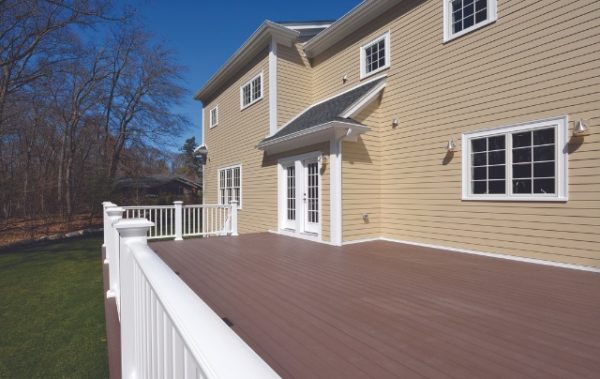Storm preparation and damage repair

If your home survived the winter without losing a shingle, brace yourself—spring is here. April can be one of the wettest months in metro Atlanta with torrential rains and strong winds, followed by tornadoes and tropical storms in the summer.
An ounce of prevention can save you from having to make costly repairs, and now is the perfect time to hire experts to give your home a checkup inside and out.
Falling trees
Trees can be one of the main offenders if they fall on your house or your neighbor’s property. That’s why it’s important to look for signs of decay before they topple.
“Atlanta is a heavily wooded city,” says Chris Heim, district manager of The Davey Tree Expert Company (www.davey.com). “We live in a forest, which is why we have all the tree issues we have.”
Hire an arborist to inspect your trees for defects and flaws, Heim says, such as decay on the trunk or around the root system, excessive or unusual leaning and excessive weight on the canopy that creates an imbalance.
“If too much of the canopy has been destroyed by high winds and ice during the winter, you might think of having it removed,” says Heim. “It’s real important to have a certified arborist look at your trees to give you advice.”
In Atlanta, any tree over six inches in diameter requires a permit to be removed. Check with your local government or homeowners association before having trees on your property cut down.
“The ordinances are designed to protect the tree canopy of metro Atlanta,” says Heim. “They just don’t want people clear cutting their property. It’s a quality of life issue.”
To find a tree expert, check with the Georgia Arborist Association (www.georgiaarborist.org) or the International Society of Arboriculture (www.isa-arbor.com).
Failing roofs
Roofs also take a beating during spring thunderstorms and could begin to leak if not properly maintained.
“Early spring is the best time to check the roof,” says David Friedlander, owner of Dr. Roof (www.drroof.com). “An inspection is a very inexpensive way of preventing damage to the interior of the roof, the ceilings, the walls and floors of the house.”
Homeowners should have a roof inspection once every three years.
“A roofer can tell if there are systemic problems with the roof by examining the life left in the shingles and by signs of nails coming out through the roof, if there is buckling plywood and deterioration around the penetrations and joints,” says Friedlander.
A roof should last about 25 years. If your roof is older than that, and shingles are loose, it might be time for a new one. Plan early because “during the springtime, roofers are very, very busy repairing and replacing roofs,” Friedlander says.
Don’t hire a roofing contractor until you have done your homework, he warns.
Make sure you are working with a trustworthy contractor by checking the company’s credentials, asking for references and looking at homeowner reviews on websites. Also question the qualifications of the workers who will install the roof. Poor workmanship might not show up immediately, so be careful who you hire.
When it comes to selecting a shingle for your roof, choose one that is built to last. For example, an architectural shingle costs about 10% more than a conventional three-tab shingle, but it is thicker, heavier and lasts longer because it is more resistant to hail damage.
“Protecting your home is not cheap,” says Friedlander.
Flood response
If heavy rain causes your house to flood, have it removed right away to prevent mold. Look for a company that can extract standing water, remove debris and dry your home to stop mold growth.
“It can get expensive if you don’t catch it right away,” says Donald Tibble of Advanced Drying Technologies (www.advanceddryingtechnologies.com). “If you catch it early, it could cost about $500, but if mold gets to crawlspaces, it can run from $2,000 to $4,000 to remove. We get a lot of that in the springtime.”
Mold removal from interior flooding is typically covered by homeowner’s insurance. Insurance also covers lightning, hail, storm and wind damage. But make sure flood insurance also is covered in your policy.
“If your pipes burst in your home, you are covered. But if the gutter clogs up, and water comes into your home, that would not be covered. Most people don’t have coverage for outside rising waters,” says Ingrid deCoteau, an agent with Sutter, McLellan and Gilbreath, Inc., which has locations in Lawrenceville and Cumming (www.smginsurance.com).
Flood insurance for outside rising water typically costs about $350 a year, she says, which is a lot less than paying thousands of dollars out-of-pocket to have standing water removed from inside your house.
 |
Things To Check
Spring Home Maintenance Checklist
The best defense against storm damage is to have your home properly inspected and maintained.
Hire a professional to:
❍ Examine the stability of your roof and shingles. Damaged, loose or blistered shingles should be replaced. If the damage is extensive, consider replacing the entire roof.
❍ Remove debris that collected in gutters over the winter. Make sure gutters are attached and don’t have leaks in them.
❍ Inspect the foundation around your home. Have cracks or imperfections sealed. If there are low areas in your yard near the foundation, fill them with compacted soil.
❍ Seal the deck to eliminate stains, discolorations and warping that could compromise the safety of the structure, particularly during a thunderstorm.
❍ Remove or trim dead branches and shrubs that grow against the house or are touching it. Also remove limbs that could fall on power lines.
❍ Make sure basement walls, floors and trim do not have water stains that could indicate water is seeping through the foundation. Check your sump pump to ensure it is working properly.
❍ Inspect underneath the roof and insulation for signs of discoloration, deterioration or stains.
❍ Fix drainage problems in your yard. If your lawn is underwater for several days, it could suffocate and die and create ongoing problems that could be costly if left unchecked.
Roofing Matters
Do your due diligence before hiring a roofer. It is not uncommon to see roofing contractors cruise through a neighborhood looking for business after a spring hail or thunderstorm. Before you sign a contract, here are some questions to ask and things to consider:
❍ Where is the company located? If you are given a post office box, ask for a street address also, and verify that the company is located there. If the company is in your area, you might get better and faster service. The company might also be easier to contact if any problems arise after the roof is replaced or repaired.
❍ Like most major home maintenance projects, get at least three estimates. Remember, the lowest price is not necessarily the best or most responsible bid.
❍ Verify that the company has insurance by asking to see a copy of their workers’ compensation and liability insurance policies. If a worker gets hurt on the job, and the contractor does not have insurance, you could be liable for damages.
❍ Confirm that the company is a licensed, credentialed roofing contractor. Check with the city or county clerk’s office in your community or the area where the contractor is located to learn what the requirements are for roofers in that jurisdiction. Ask for a copy of those credentials or licenses.
❍ Ask how long the company has been in business. Typically, the longer the better because contractors who have a lengthy track record can provide more references.
❍ Check the contractor’s references by asking for names and telephone numbers of up to a dozen customers. Ask customers if the contractor performed the work on a timely basis, if he was trustworthy and if he did what he said he would do within the agreed budget. Also find out if the work was performed to the customer’s satisfaction and if any repairs were required after the work was completed. Be sure to ask the customer if he or she would use the contractor again.
❍ Find out the length of the company’s warranty on the work to be performed. Some roofers guarantee their work for one year, others longer. Be sure to distinguish between the workmanship warranty and the manufacturer’s warranty on the product, and get it in writing.
❍ Review your contract to ensure that the roofer will provide a dumpster to haul away old shingles and related debris. Make sure the contract stipulates how long it will take to install your new roof and what the penalties will be for delays.
❍ Contact the Better Business Bureau (www.bbb.org) to find out if any complaints have been filed against the contractor you are considering and how those complaints have been resolved.

8 easy-to-care-for houseplants to revive your space


Q & A – What are three things I can do to keep my driveway looking new through each season?

Award-Winning Kitchens, Baths, Interior Design and More

Atlanta’s NKBA Designs of Distinction 2019 Winners

100 Things to Know Before You Remodel

What’s the simplest way to upgrade your window treatments?








